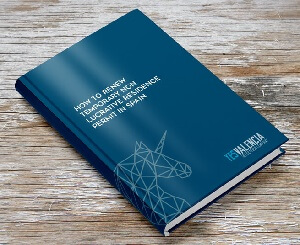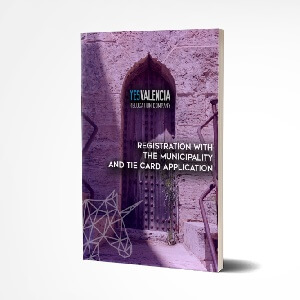Greetings
Even though Spaniards will happily greet members of the opposite sex with kisses on the cheeks you shouldn’t do this in a business setting unless you have a good relationship with the other person already. Your best bet is to offer a firm handshake. If it is appropriate for there to be a kiss then your Spanish colleague will initiate the kiss. It’s also important to understand that you don’t actually kiss their cheeks. Instead you must kiss the air while touching cheeks with them.
How to Address People
Spanish people have two first names and two surnames that are made up of their father’s first surname and their mother’s first surname. When addressing someone you should use “Señor” (Sr.) and “Señora” as you would use Mr. and Mrs. in English.
During Business Meetings
During the first business meeting that you have with a Spaniard they will be keen to know you better before they do business with you. As such you should be accommodating to them and answer their questions about you and your background. Spaniards appreciate honesty and will actually check that you have been honest with them. This tells them that you can be trusted and that you and your business is one they should be in a relationship with.
There’s a good chance that your business meeting will not closely follow a detailed agenda. When negotiating in Spain it’s common for one party to take the lead but you can still make flexible agreements and you could need to tough it out and persevere to ensure that any commitments made are stuck to. Remember that you are in Spain to do business, not to enforce your business culture on Spain.
During a Business Meal
If you want to have a business meal and discuss business over lunch then you need to tell your business partner in advance so that they are ready to talk business at the table. The Spanish consider their mealtimes a time to relax and enjoy themselves rather than try and secure a business deal. Deals are usually done at the office and then celebrated with a meal rather than the other way around. The Spanish party will sometimes invite you out for a meal to be nice with you. Remember that the one who sends the invite is the one who pays for the food and, if you’re the one who is invited and paid for, you should return the favor at a later time.
Conversation
Spanish people love to hold conversations and can happily talk away most of their free time. Talk to them about their children and their family if you want to. You’ll find you can talk about almost anything. The Spanish are fiercely proud of their food and their wine and you’d do well to not argue their quality. You also shouldn’t be surprised if a short evening out becomes something that lasts all night long. The Spanish also like complementing women and telling them that they look good. You can either thank them for their words or complement them back if you feel like it. Political correctness doesn’t really exist in Spain. You should try to be humble in Spain because no one is going to be impressed by you bragging about how things work in your country or how things are restricted in Spain. It’s also a good idea to avoid trying to bring up stereotypes such as siestas, fiestas, bullfighting and flamenco dancing if you don’t want to annoy your Spanish counterparts.
Spanish Working Hours and Holidays
The hours that a Spanish business can be open to the public are regulated by the Spanish government. A shop in Spain will usually be open between 9AM and 2PM and then open up again between 5PM and 8PM for Monday through Friday. They also open up again on Saturday mornings. The larger department stores will often be open all day. A professional office will often be open between 10-2 and then again between 4 and 7, though these days more businesses are adopting a straight 9-4 business day so perhaps the traditional siesta hours are on the way out. Spanish banks are open between 9 and 2 and then they are required by law to open up either one afternoon a week or once more on Saturday morning. August is when most people go on holiday and it is during this month that office hours change to the jornada intensiva hours of 8AM to 3PM.
Lunch in Spain is between 2PM and 4PM and it’s not that uncommon for Spanish people to go home for lunch. In larger cities though many people go to a restaurant for their lunch to avoid having to commute twice. Dinner is a lighter meal in Spain and restaurants often serve dinner at around 10PM.
Spain is a country with national, state, and even local holidays. To see a full list of all of them go to the Social Security site of Spain and open up the “Información útil” tab, followed by the “Calendario Laboral” tab. If a holiday is on a Tuesday or Thursday then most people take off the adjacent Monday or Friday and have themselves a long weekend.
Tipping in Spain
If you go to a restaurant or bar in Spain or get a cab then it is typical to leave behind the small change. There’s no dirty looks to be had if you don’t do it though. If you feel like it would be cheap to not leave a tip then leave a 5% tip.
Time and Punctuality
It’s a complete falsehood that Spanish people are always late. You should be on time if you want to make a good impression and you should expect any Spaniard you meet to also be on time. They might not stress about punctuality as much as you but they still try to always be on time.
Smoking in Spain
Spain recently introduced regulations against smoking in Spain but, much like with many regulations, there is some leniency involved. There was a time when the Spanish were some of the heaviest smokers in Europe but times have changed. While there are still some places where you can smoke in Spain you should have an easier time if you’re used to a smoking ban. If you’re really bothered by smoking then you should be able to find yourself a great smoke-free restaurant, bar, or hotel and you can always complain if someone does light up a cigarette there.
Gifts
It’s not that uncommon to give a broker or a professional such as a bank officer a gift after completing successful negotiations. If it is a woman then flowers and chocolate are traditional gifts while a good bottle of wine makes a great present for a man. If you are the one getting the gift then you should open it up right away in front of the giver and declare your thanks (Gracias!) The gift should be of a high quality and it should be wrapped up. A company is also likely to give their best clients a nice Christmas present. If you are giving a gift then you should avoid giving something too personal or extravagant as your generosity could be seen as an insult. If a Spaniard invites you to their home you should turn up with flowers, a dessert, or a nice bottle of wine as thanks.
Dress
How you look when doing business is extremely important in Spain. It’s a good idea to pick up a classic brand name. If you want to make the right impression then you need to look fashionable and smart. Clean up your shoes and sort out your hair. Perfume is also important, as are your accessoires.
It’s best for men to wear a dark and subdued color. You can’t go wrong with a tailor-made woolen or linen suit, a white cotton shirt, and a silk tie. Women should also wear well-cut suits made out of high quality fabric. Spaniards recognize and appreciate brand names. It’s important for a female business traveler to showcase her femininity by having immaculate clothes and hair.
“Business casual” in Spain means wearing a clean and fashionable designer cotton shirt and a good pair of pants. Of course there’s no need for a tie though.
If you receive a party invitation that calls for formal wear then it means formal. This means men need to wear a black tuxedo and women need to wear a cocktail dress in a conservative color. Women also tend to wear more make-up during a formal event and have a professional take care of their hair.





No responses yet